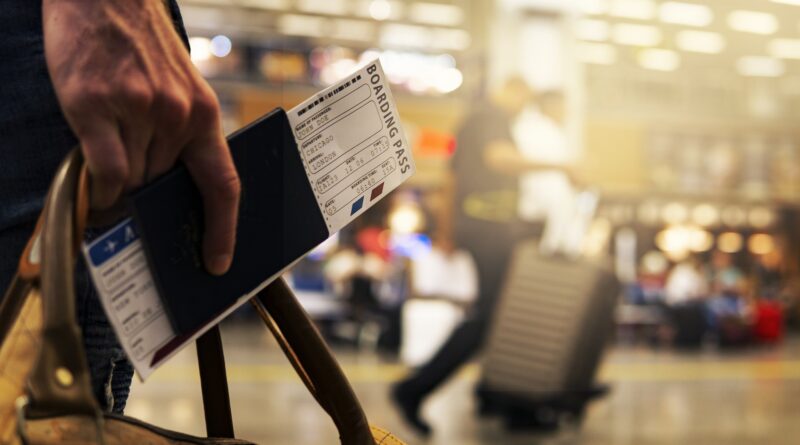Britons in Europe urged to check their documents for new EU border system
The UK and EU governments have urged British citizens living in European countries under the terms of the EU withdrawal agreement to make sure they have the right residence documents in preparation for the new EU border system.
The issue affects especially Britons in countries that did not require to apply for a new residence status to secure post-Brexit rights, as they may not have what is needed to be exempted from new border checks.
What is the new EU border system
Based on current plans, on 6 October the EU Entry/Exit system (EES) will become operational. The EES was created to increase security and to ensure that non-EU nationals on short-term visits do not stay more than 90 days in any 180-day period, as required by EU rules.
The system will apply in the countries of the Schengen area (EU member states except Ireland and Cyprus, plus Iceland, Norway, Switzerland and Liechtenstein), where internal border checks have been abolished.
It will register visa-exempt travellers from non-EU countries each time they cross the external Schengen borders, replacing the manual stamping of passports with an electronic record of entries and exits.
The EES will capture the person’s name, type of travel document, fingerprints and facial images and the date and place of arrival and departure. At the first entry, fingerprints and photos will have to be registered in the presence of a border officer. Data will remain in the database for three years, renewed at each entry.
Six months after the EES, the EU will also introduce the European Travel Information and Authorization System (ETIAS). This will require people from visa-exempt countries visiting the Schengen area for short stays to apply for an authorisation before departure and pay a 7-euro fee.
ETIAS will be free for applicants below the age of 18 or above 70, and for family members of EU citizens or of nationals of Iceland, Liechtenstein, Norway or Switzerland.
New recommended documents
The EES and ETIAS will not affect EU citizens, visa holders and people who live in the EU, but they will need the documents listed in the Schengen Border Code to prove their status.
There are concerns that British citizens with old residence cards might not have the right documents.
The Polish government has recently urged UK citizens who are beneficiaries of the withdrawal agreement to get a residence permit, even if this was not required to stay in the country post-Brexit.
The document “will exempt from future Entry/Exit System (EES) registration when crossing external borders and from the need to obtain an ETIAS travel permit in relation to short-term travel to EU/Schengen countries,” the web page says.
The UK government has also updated its Living in Europe advice pages, including for Spain, which hosts the largest community of British citizens in the EU.
“If you registered as a resident before 6 July 2020, you will have a green A4 certificate or credit card-sized piece of paper from Extranjeria or the Police called a ‘green certificate’. Whilst this remains a valid residency document, the British Embassy in Spain and the Spanish government strongly recommend that you register for a ‘Tarjeta de Identidad de Extranjero (TIE)’,” says the government page.
The TIE is “listed in the EU’s Schengen Border Guard Handbook, whilst the non-biometric green certificate is not,” it adds.
“It is expected that green certificate holders may face significant delays and difficulties at borders if they do not have a TIE,” the advice continues.
A similar notice was issued for UK citizens living in Cyprus.
“If you registered as a resident before 1 January 2021, you will have a MEU1 or MEU3 residence document. Your non-EU family members will have a MEU2. You can exchange your MEU residence document for the MUKW biometric withdrawal agreement residence document,” the webpage says.
“We strongly recommend that you request the MUKW residence document. While MEU documents remain valid until their expiry date, the MUKW residence document shows that you have the rights defined in the withdrawal agreement” and “your right to enter Cyprus exempts you from the European Travel Information and Authorisation System (ETIAS) and visa requirements”.
For the Czech Republic, the UK government says: “If you have a paper Czech residence permit (Potvrzení o přechodném pobytu / Potvrzení o trvalém pobytu) you must exchange it for the new biometric card as soon as possible.”
In Germany, the recommended residence document is the Aufenthaltsdokument-GB, in Greece the Engrafo Diamonis 18 (4), in Estonia the ‘Elamisloakaart’, in Italy the withdrawal agreement ‘carta di soggiorno’ (biometric residence card), which is a separate document to the biometric identity card (carta d’identità). For Poland, the recommendation is to obtain the Dokument pobytowy dla beneficjenta umowy wystapienia – or “travel within the Schengen area will also be more difficult.”
Several concerns
The introduction of the EES has been delayed several times due to difficulties with the huge IT system behind its operations.
The House of Commons European scrutiny committee has conducted an inquiry to assess the impacts of the EES in the UK, given that there are juxtaposed border checks for the EU at the port of Dover, at the Eurotunnel terminal in Folkestone, and at St. Pancras station in London. There are fears that longer registration times at the border will cause long queues.
In its submission, British in Europe, the coalition defending the rights of UK citizens in the EU, said that the “principal concern… is to ensure that UK citizens living in the EU covered by the withdrawal agreement are not impeded when travelling to and from their country of residence (from the UK and elsewhere outside the EU) and when they transit through other EU countries.”
“It is imperative that border officials recognise such individuals as having similar rights to citizens of the countries in which they are legally resident when they enter and exit the country, and are fully conversant with the documentation they provide to confirm such status,” the document says.
The group said that representatives of the travel companies, which have responsibility for checking documents, “understand fully what rights such documents confer and ensure that holders are treated in the same way as EU citizens for the purpose of both EES and ETIAS”.
The position of dual UK and EU citizens should also be addressed, British in Europe added.
Those issues, and the introduction of a similar system in the UK (the Electronic Travel Authorisation – ETA), will be discussed on Thursday at the specialised committee on citizens’ rights under the withdrawal agreement in Brussels.
Claudia Delpero, Europe Street News © all rights reserved
Image by Joshua Woroniecki from Pixabay
Europe Street News is a news service on the European Union and citizens’ rights. We are fully independent and we are committed to providing factual, accurate and reliable information. As citizens’ rights are at the core of democracy, our website and newsletter are free to read. Please consider making a contribution of your choice using this link or the menu below so we can continue and expand our coverage. We are always happy to hear your suggestions and ideas for improvement. Thank you!





